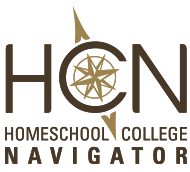College readiness is a term frequently thrown around by high school teachers, media outlets, and your government representatives looking to pass legislation in a botched attempt to fix our education system, and those annoying motivational speakers who get paid to tell you why you should go to college. But if there’s anything that numbers and statistics can tell us, we’re not ready for college.
In a 2010 report by the National Center for Public Policy and Higher Education, it was said that 60% of students are not ready for college. A couple months ago, the College Board reported that out of this year’s batch of high school students, only 43% of those students were ready for college, saying that only that many were able to reach the 1550 benchmark on the SAT. Not following much further behind, ACT Inc. said that 51% of students who took the ACT demonstrated college readiness in reading. It’s a little more generous than the College Board’s 43% overall or the NCPPHE’s 40%, but to say that only half of the Class of 2013 are capable of passing Communications 1 is a real kick in the teeth to teachers, schools, and students alike.
Sylvan Learning provided these statistics to my convenience (and yours) to say this: prepare kids for college sooner. Schools don’t normally begin preparing students for the college environment until about the 11th grade, but as Sylvan Learning suggests, schools should begin to prepare students as soon as the 8th grade. I don’t necessarily agree with the idea of high schools putting more emphasis in preparing students for college, though I do agree with their approach in saying that parents should play a major role in this process.
For one, to make sure they’re ready academically, they say that parents should have their kids take more advanced courses in math, science, and literature. Many community colleges allow dual enrollment for students as early as their freshman year of high school (or the equivalent of that if you’re homeschooled), so what better way to get prepared than to enroll at an accredited school? Another thing too is research. Get to know what the college you wish to enroll in expects of you. And sometimes, by just showing them what it is that you aspire to do can say more about you than your academics.
So when it all comes down to it, all these numbers and statistics really mean nothing in terms of college readiness. If you do your research and really apply yourself, it shouldn’t be too difficult to get into the college of your choice. Just like anything else in life, determination is key to college success.


Recent Comments